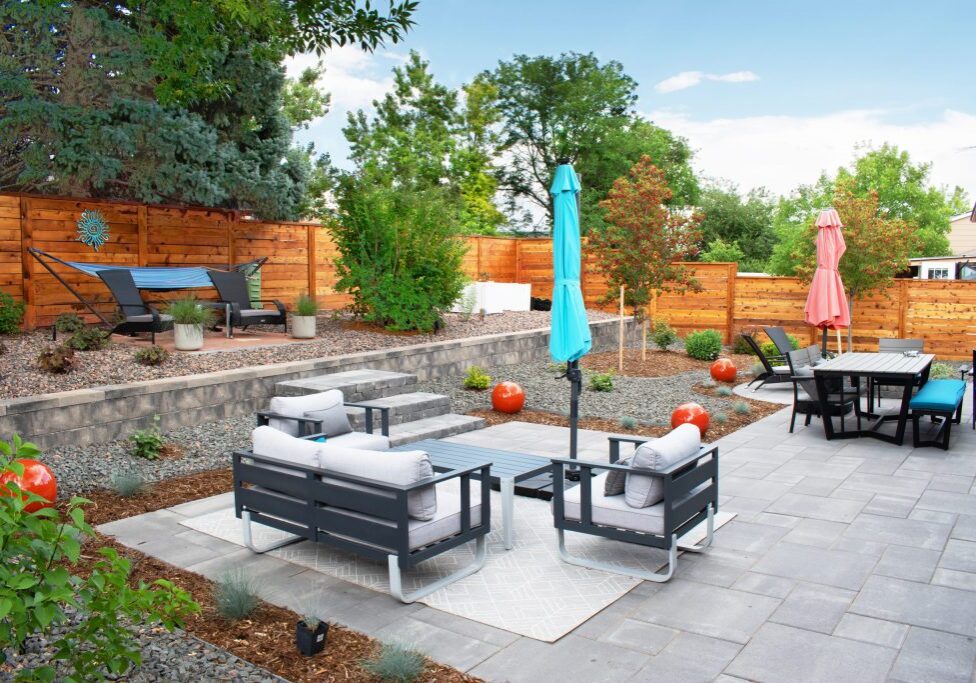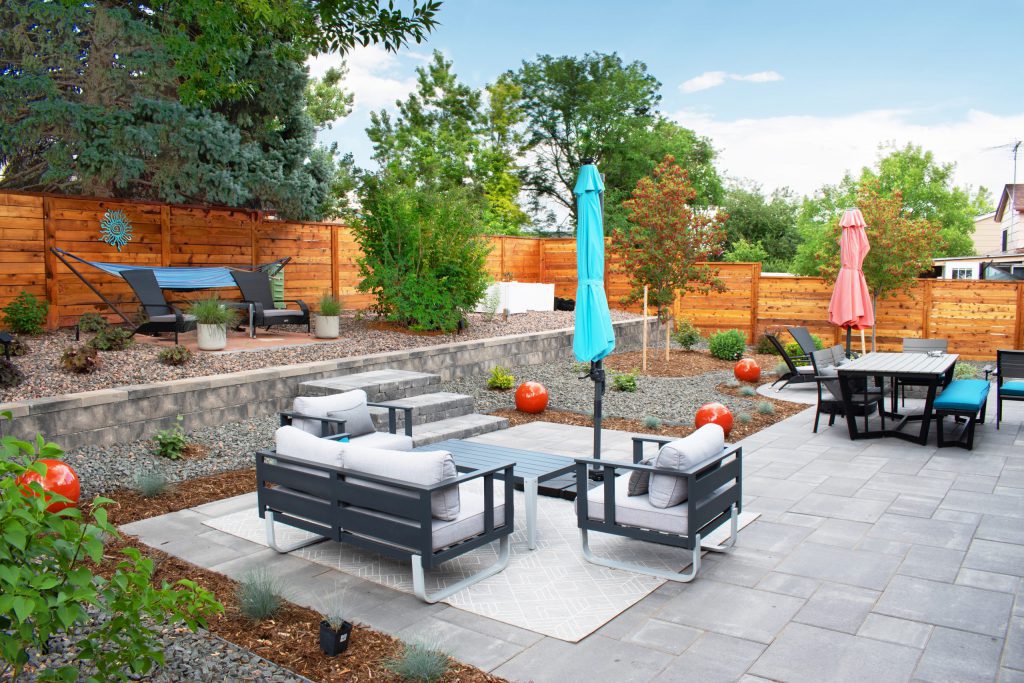By Caleb Contois, January 21, 2022
 purpose
purpose
Interlocking concrete pavers offer a unique solution when creating your ideal outdoor living space. Their uniformity in color and shape ensures a cohesive appearance, and the pattern they create produces beautiful lines for the eyes to follow. Aesthetics aside, a paver walkway/patio is a durable structure that will last decades.
Pavers, also referred to as concrete pavers, are an alternative to using a poured-in concrete slab, and/or flagstone pavers. A concrete slab is more vulnerable to wear and tear by the elements, and it can be difficult to fix due to it being one whole piece. Flagstone pavers are irregular shapes cut from natural stone as opposed to being manufactured from a mold such as pavers. Naturally, this can make flagstone pavers more difficult to replace than concrete pavers.
Pavers cover an area just like poured-in concrete, but their individual pieces provide for a more flexible structure. And in the event one paver breaks, it is easily removed and replaced. Similarly, when compared to flagstone, concrete pavers are easier to replace because they come from a fixed set.
price
The price for pavers per square foot is $5-$13, and $32-$35* after accounting for labor costs.
The labor cost figure was calculated using metadata that tracked a 2-man crew throughout an entire paver patio installation. This figure includes the time it took for excavation, subsoil compaction, base installation, base compaction, paver placement, and sealing the patio with polymeric sand.
*Disclaimer: It is important to note that variables such as site and soil conditions can factor into the final price. For example, during excavation, it is discovered that there is a lot of broken concrete from a previously existing pool. The extra time it takes to dig the concrete out and to dispose of it will contribute to the overall cost of the project.
performance
How do they work?
The strength of pavers lies in their being “interlocked” when laid in place. Instead of being a single piece, such as a poured-in concrete slab, pavers are smaller pieces that come together like a tight puzzle. The pavers are placed on compacted material and reinforced along the perimeter to produce a structure fit to handle vertical and horizontal forces.
Are they durable?
Pavers are created using an aggregate of rock, concrete, and other hard materials, giving them a tough composition that is equipped to handle every-day use.
how do they handle extreme weather?
Pavers are separated by a small gap when they are laid. This gap allows for the pavers to expand without cracking in extreme cold weather.
How do they deal with rainwater?
All paver structures are installed with a minimum 2% slope per 10 feet, which is equivalent to ¼ inch per foot, to allow for water runoff.
Are they high maintenance?
Concrete pavers require little maintenance.
How long does it take to install?
A 2-man crew can lay 4.5 sq ft of pavers per hour.**
Example: The time it takes a two-man crew on a 1,000 square foot patio:
1,000 sq ft / 4.5 sq ft an hour = 222.22 hours.
**This figure was calculated using metadata that tracked a 2-man crew throughout an entire paver patio installation. This figure includes the time it took for excavation, subsoil compaction, base installation, base compaction, paver placement, and sealing the patio with polymeric sand.
are all pavers the same?
You have many options when choosing which pavers are best for your home project. Pavers range in size, color, and shape. Unilock, a respected paver manufacturer in the industry, has many options available, which you can view here.
which pavers are right for me?
Choosing the right pavers for your outdoor living space comes down to preference. There are many variations to choose from, which means you will likely find something to suit your vision. All pavers are manufactured to meet the ASTM (American Society for Testing and Materials) standard, so no matter which variation you choose, you can be sure that you are getting a quality product.
what problems will I have with an interlocking concrete pavement?
Proper paver installation will ensure that your patio will last a long time with very little maintenance required. Problems like settlement, rutting, and paver displacement can occur with improper installation. It is important to know how these kinds of issues may arise, which is why we wrote an article on the subject entitled “Pavers – Possible Problems,” which you can read about on our blog page.
find us on social media
Would you like to learn more about concrete pavers with videos and pictures? Check out our social media pages for helpful content!

 purpose
purpose